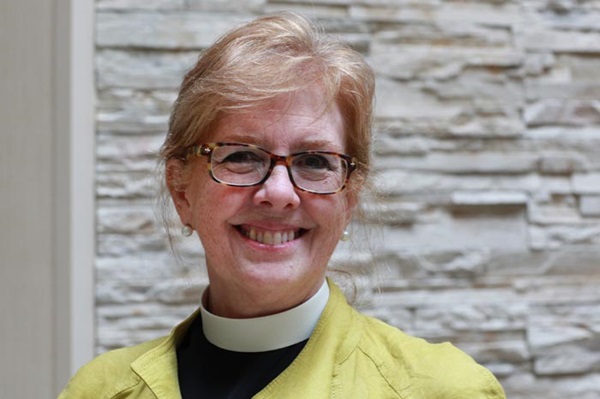Challenging the world's 12.4 million United Methodists to be involved in Christ-inspired social concerns is a big undertaking.
But that is the mission of the United Methodism's General Board of Church and Society.
The General Conference, the denomination's top legislative body, entrusts the agency with this work of public witness, reconciliation and peacemaking in the United States and around the world.
"We do it using the gospel, the Social Principles and the (Book of) Resolutions as core documents, but the other documents of the church are important in helping churches and our advocacy endeavors know the way forward," said general secretary the Rev. Susan Henry-Crowe, GBCS.
The Social Principles are 73 statements of church teachings that cover a wide range of issues, including racial justice, homelessness, hunger, climate change, drug addiction, incarceration, opposition to tobacco and alcohol, medical experimentation, genetic technology, rural life, HIV/AIDS, mental health, right to health care, equal rights regardless of sexual orientation and rights of people with disabilities.
GBCS uses the principles and the resolutions, both adopted by General Conference, to develop resources to inform, motivate and train United Methodists on issues of social justice in society.
"The Social Principles are the best guidance of the General Conference, put together in a democratic process by a large committee, on what the church wants to say to United Methodists and people around the world on how we do good and how we try to live out the Gospel," she said.
"The Social Principles of the church are the best wisdom we have on how to address issues that face society. They move with some fluidity and address issues that societies around the world face at any particular time in history."
Not all United Methodists agree with all of the teachings – nor do they need to.
"United Methodism encourages critical thinking and belief about a whole variety of issues," Henry-Crowe said. "That does not mean that everybody has to believe in every single principle the way it is written. But in all things, we are unified in our commitment to Jesus and in our commitment to United Methodism."
The Social Principles are intended to be guiding and educational documents that people discuss, learn from and talk about in Sunday school and other settings. They guide the direction of a local congregation, as well as the whole church, but they are not written in stone.
Seven Listening Sessions conducted by the agency throughout the world in 2014-15 at the direction of General Conference and the Connectional Table underscored the importance of the Social Principles.
Henry-Crowe said the statements were seen as instruments of empowerment in many communities.
Some inconsistencies and conflicts exist, but Henry-Crowe considers the Social Principles the church's best efforts at speaking to issues.
"We're not asking you to believe or affirm every single thing," she said. "We affirm the inclusiveness and freedom of thought within the church," she said.
Tom Gillem, freelance photographer and writer based in Brentwood, Tennessee.
One of seven apportioned giving opportunities of The United Methodist Church, the World Service Fund is the financial lifeline to a long list of Christian mission and ministry throughout the denomination. Please encourage your leaders and congregations to support the World Service Fund apportionment at 100 percent.





